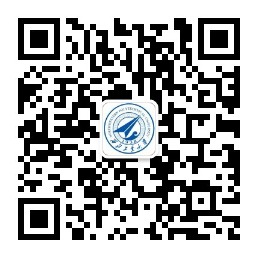From August 5 to August 18, 2024, 25 students from QMES participated in a 14-day summer programme at the University of Cambridge, led by Zhang Peng, Deputy Director of the Planning and Finance Department, Cheng Yin, Vice Dean of QMES, and Tong Miaomiao, staff from the Student Affairs Office. This program focused on “Machine Learning Design and New Material Discovery” and aimed to enhance students’ international perspectives, strategic thinking, and global competencies, supporting the school’s goal of cultivating “Chief Engineer-type” talents.
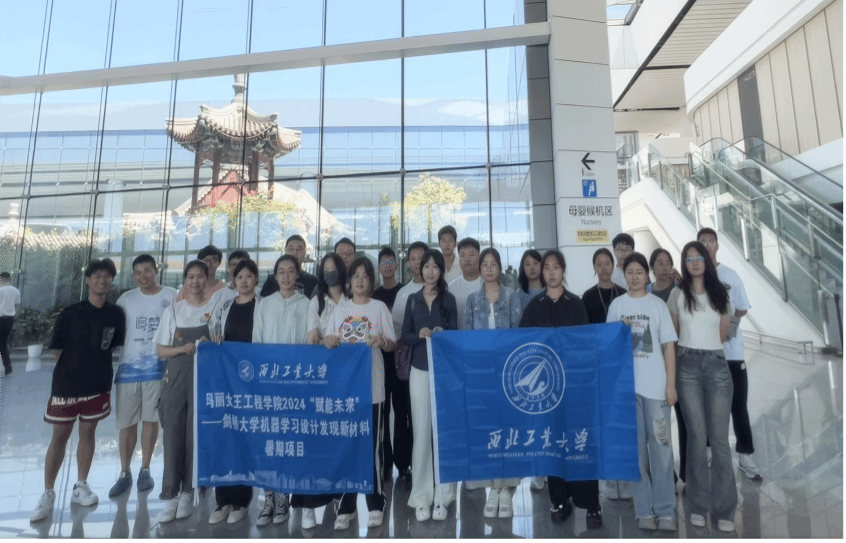
Introduction of the University of Cambridge
The University of Cambridge is a globally renowned public research university, known for its traditional collegiate system and as a member of The Russell Group. It is celebrated as one of the Golden Triangle institutions and one of the G5 universities in the UK. In the 2024 QS World University Rankings, it is placed second overall and ranks within the top ten globally for materials science.
Navigating Safely, Preparing Thoroughly
To ensure the smooth execution of the study programme, the International Cooperation Office and QMES held a series of pre-departure training sessions on June 21, June 27, and July 19. These sessions, conducted both online and in-person, covered all project members. The training provided comprehensive explanations on preparation and itinerary, travel safety and disciplinary requirements, and strategies for emergencies. QMES also detailed the programme’s curriculum and teaching staff. These pre-departure sessions effectively deepened students’ understanding of the overseas study programme, enhanced their safety awareness and sense of responsibility, and laid a solid foundation for the project’s successful implementation.
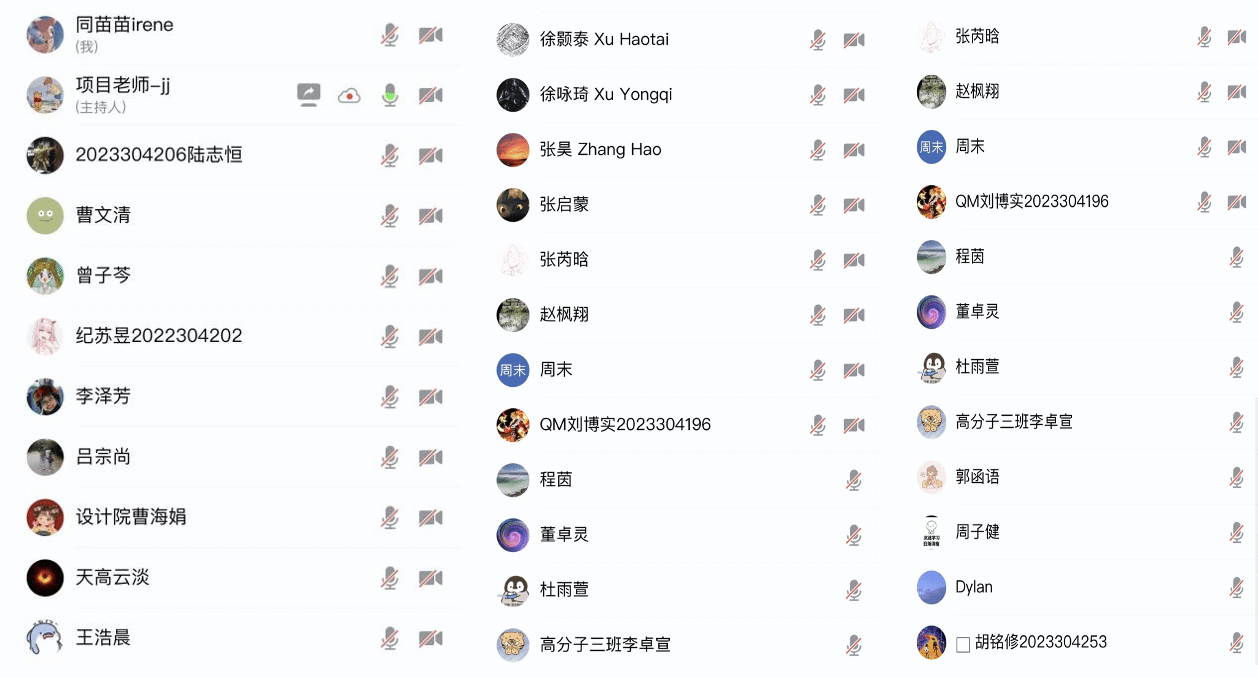
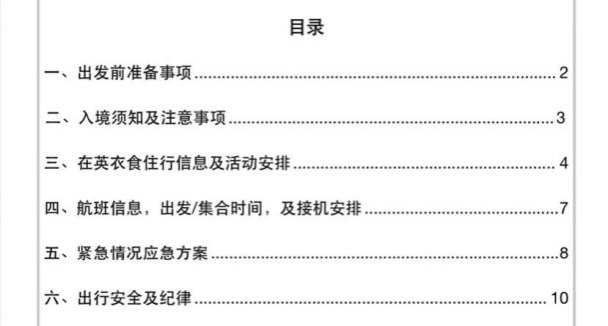
Exploring Cambridge’s Legacy, Advancing Discipline’s Frontiers
On August 6th, with the melodious strains of Scottish bagpipes setting the tone, the opening ceremony of the Cambridge University Machine Learning Design and New Material Discovery programme officially commenced. Professor Monserrat, Head of the Department of Engineering and Director of the Mechanical Engineering and Materials Design Laboratory at Cambridge University, introduced the key details of the summer study programme and extended a warm welcome to all participants.
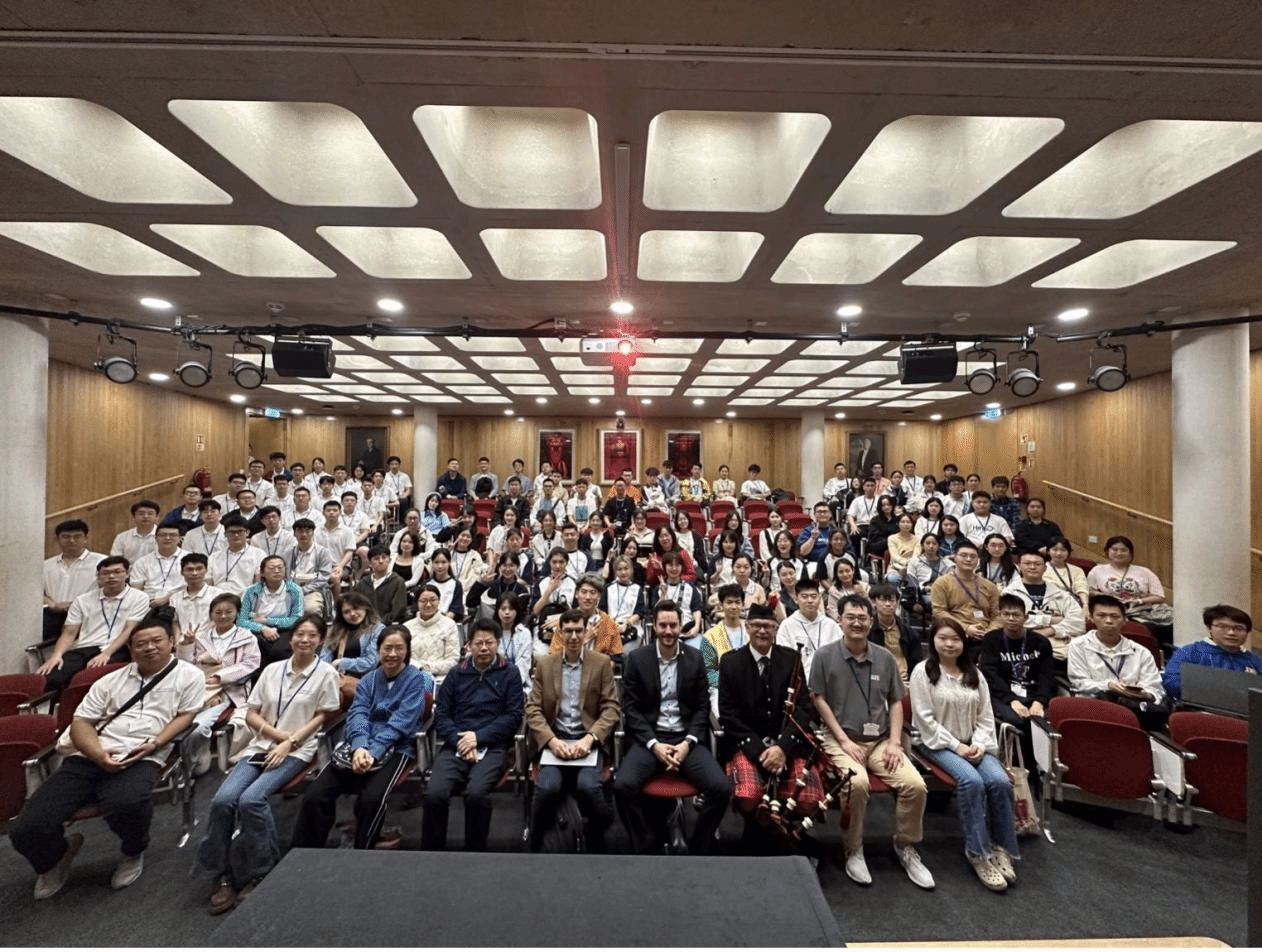
On August 8th, David Cardwell, Pro-Vice-Chancellor for Strategy and Planning at the University of Cambridge and a fellow of the Royal Academy of Engineering, delivered a presentation to the faculty and students participating in the summer programme. His talk covered the university’s educational philosophy, distinctive strengths, historical development, and postgraduate application process. Cardwell highlighted Cambridge’s significant academic achievements across natural sciences, engineering, and humanities, noting that Cambridge laboratories, such as the Cavendish Laboratory and the Molecular Biology Laboratory, have nurtured over 120 Nobel laureates. He encouraged students to build core competencies, cultivate an insatiable curiosity for academia, explore unknown fields, and develop confidence in pursuing further studies at world-renowned institutions like Cambridge. He advised engaging actively with professors from top universities to gain the latest application information and academic guidance, thus laying a solid foundation for their future academic careers. In closing, Cheng Yin, Vice Dean of QMES, presented Cardwell with a commemorative gift and expressed gratitude on behalf of the QMES.
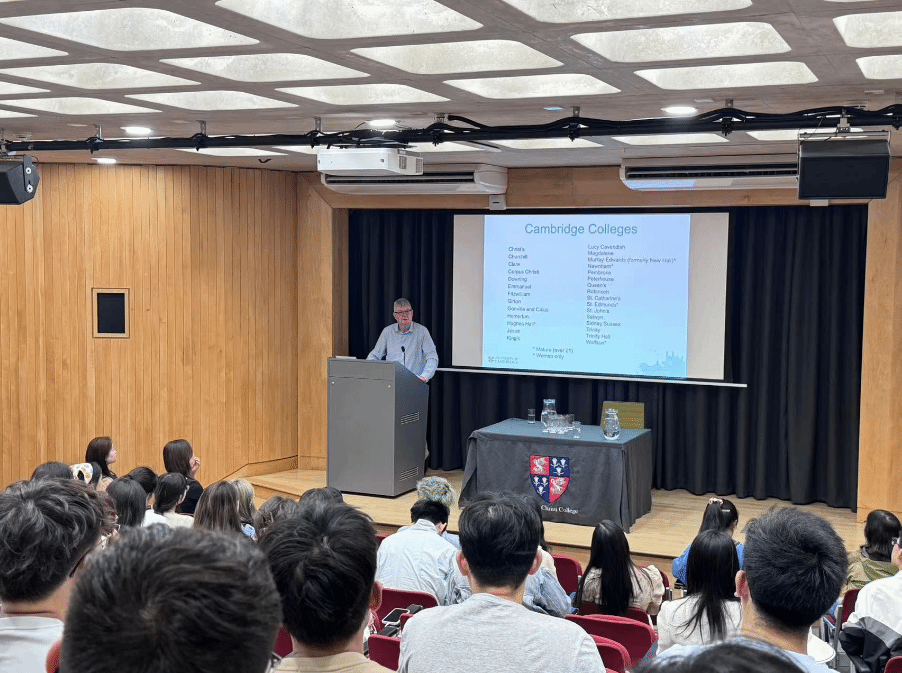
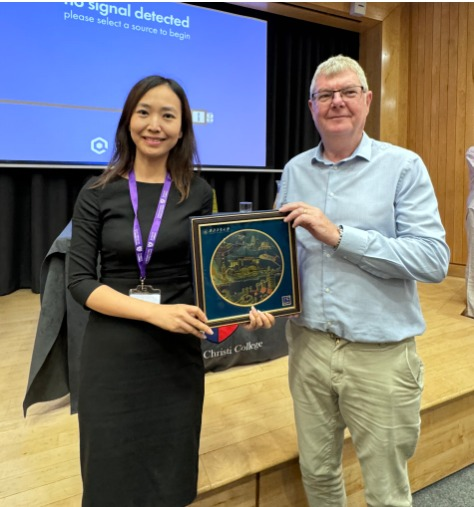
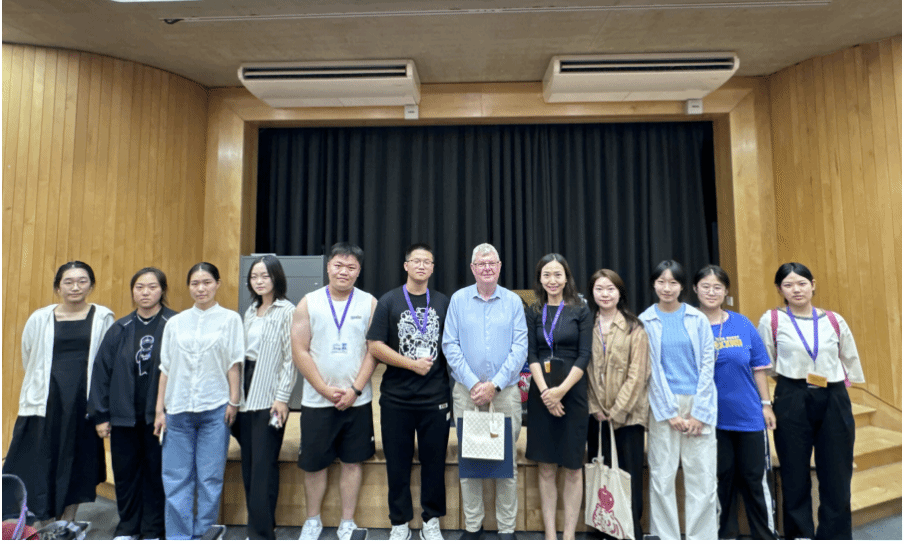
On August 9, the programme officially commenced. Led by Monserrat, the course covered five key topics: two-dimensional materials, superconductors, batteries, solar cells, and the application of machine learning in materials science. Under the guidance of professors, participants delved into the latest developments in each subject, integrating machine learning design techniques to conduct innovative research in the field of new materials. At the end of the programme, all 25 participants received certificates awarded by the University of Cambridge.
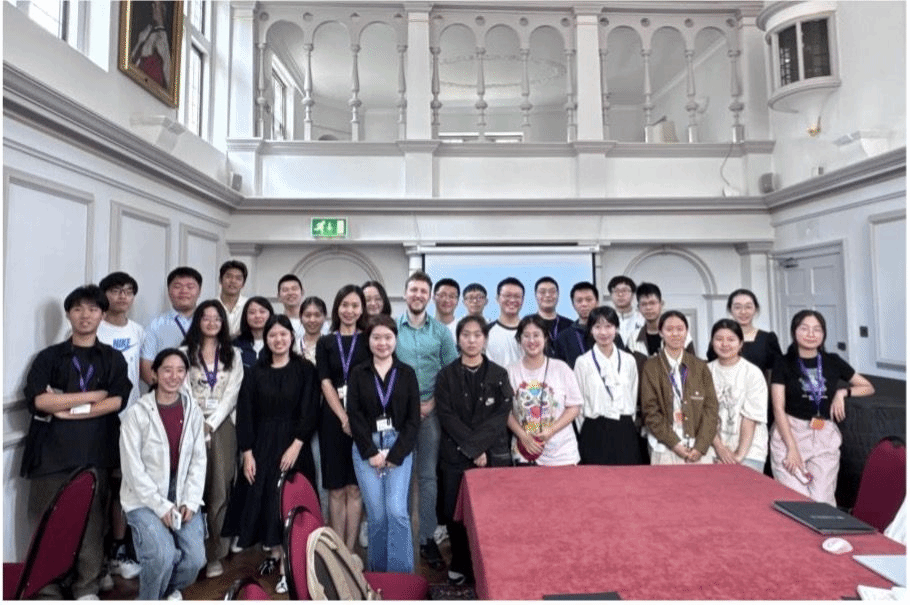
On August 15, Professor Didier Queloz, the 2019 Nobel Laureate in Physics and a professor of Physics at the Cavendish Laboratory at Cambridge University, delivered a lecture to students. He reviewed his team’s extensive work over the years in developing astronomical instruments and technologies, their methods for discovering thousands of exoplanets, and their research progress. He discussed how measuring planetary volume, mass, and temperature, as well as studying atmospheres, has aided in the search for Earth-like planets suitable for remote life research. These findings present unprecedented opportunities and challenges for understanding the formation and evolution of planetary systems. Following the lecture, students actively engaged in a lively Q&A session with Professor Queloz. The face-to-face interaction provided students with a deeper understanding of cutting-edge astrophysical research and offered significant inspiration and encouragement.
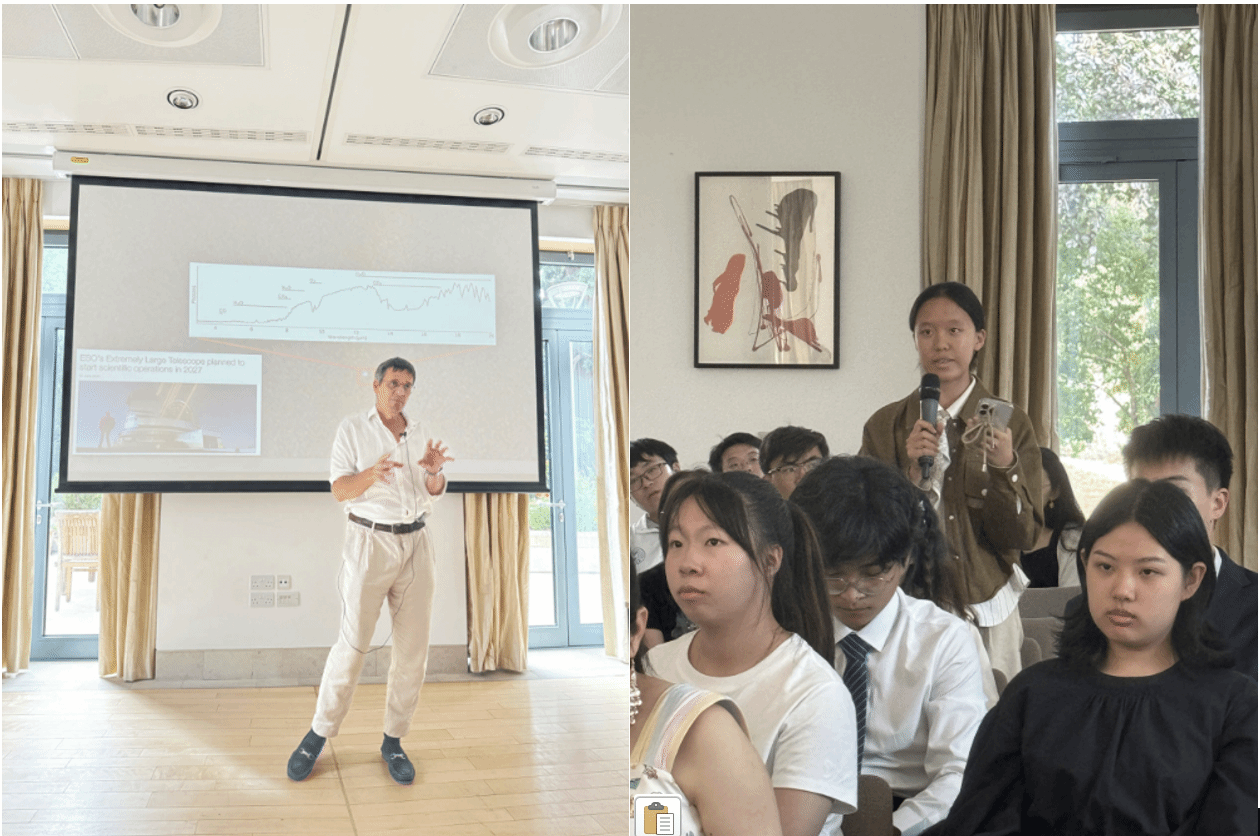
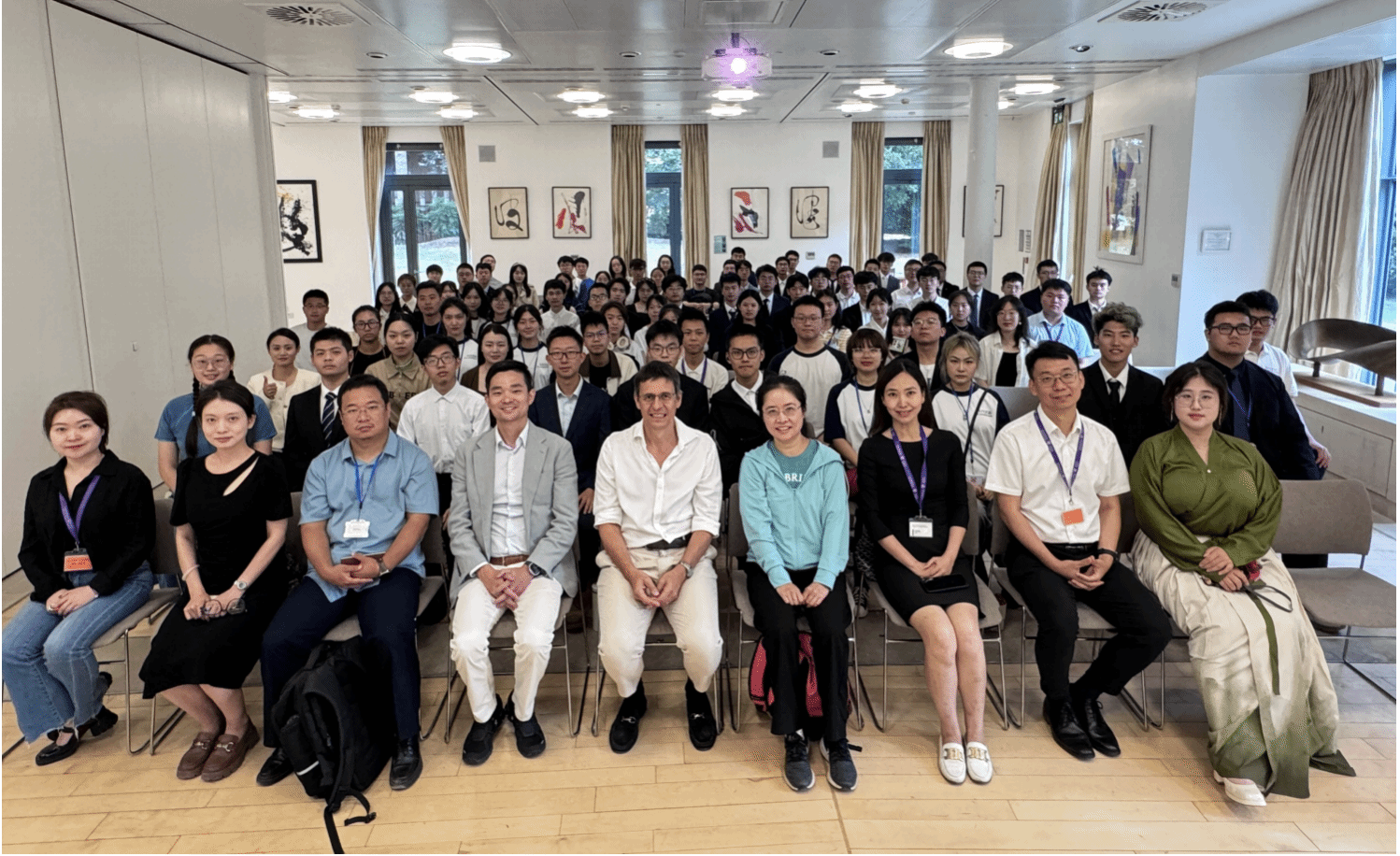
Cultivating Cultural Awareness, Expanding Global Perspectives
To immerse students in the atmosphere of a world-renowned university, the research programme has meticulously arranged for students to stay at Magdalene College, University of Cambridge. This arrangement aims to enhance interactions between students and the faculty and staff of Cambridge while offering them a rich array of campus cultural activities. Living in the university’s dormitories and within its colleges, students experience the daily life of Cambridge scholars and gain a comprehensive understanding of British higher education culture and history.
On August 6th, students traversed through time and experienced the unique Cambridge activity of punting. They felt the historical depth of the world-renowned university and drifted towards ever-greener grass, immersing themselves in the romantic scenery described by Xu Zhimo.
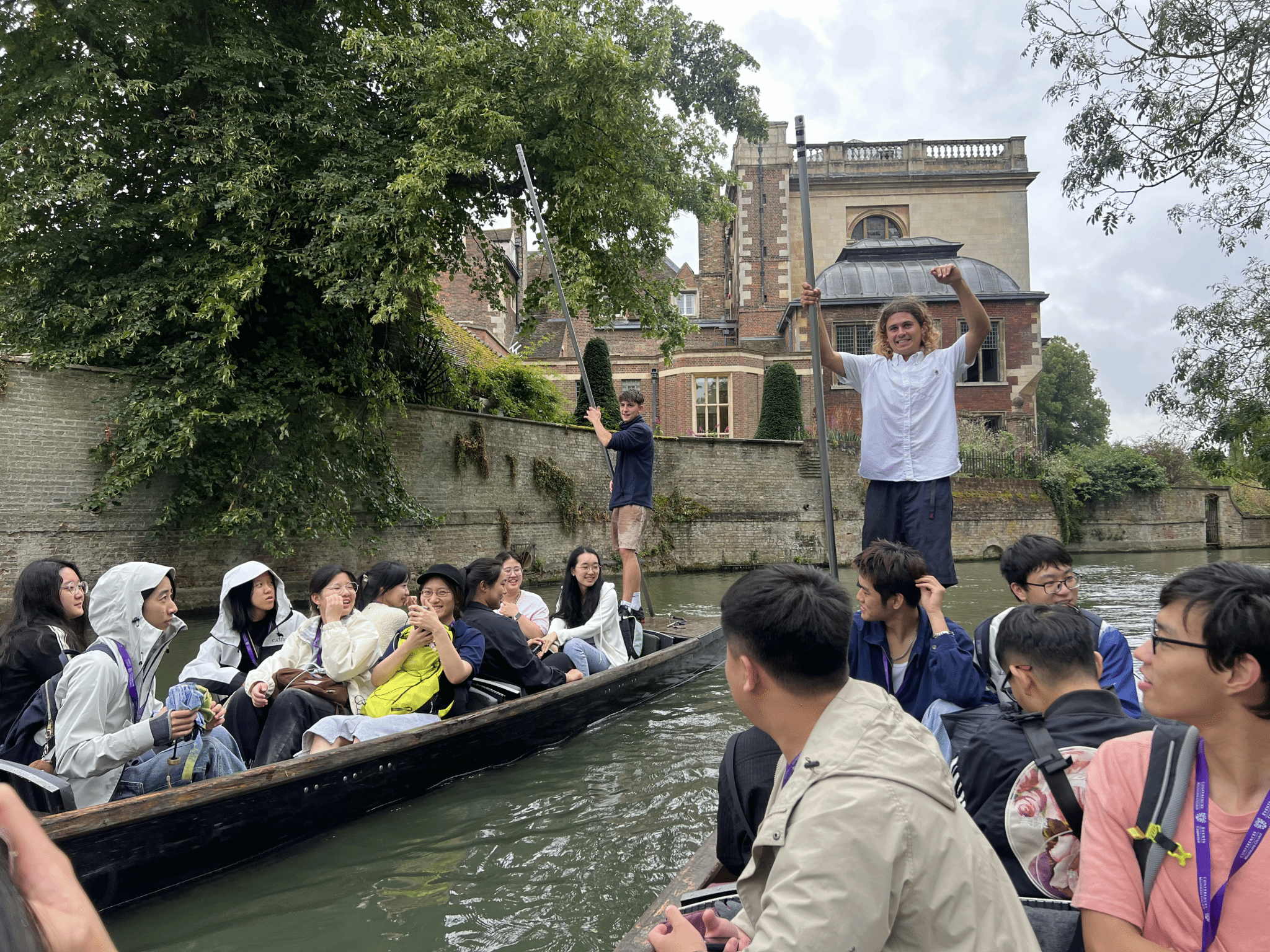
On August 8, the project team visited the Cambridge Centre for Computing Museum. The museum houses a rich collection from the information age, showcasing the evolution of computers and video games, and providing further insight into the rapid advancements of the digital era.
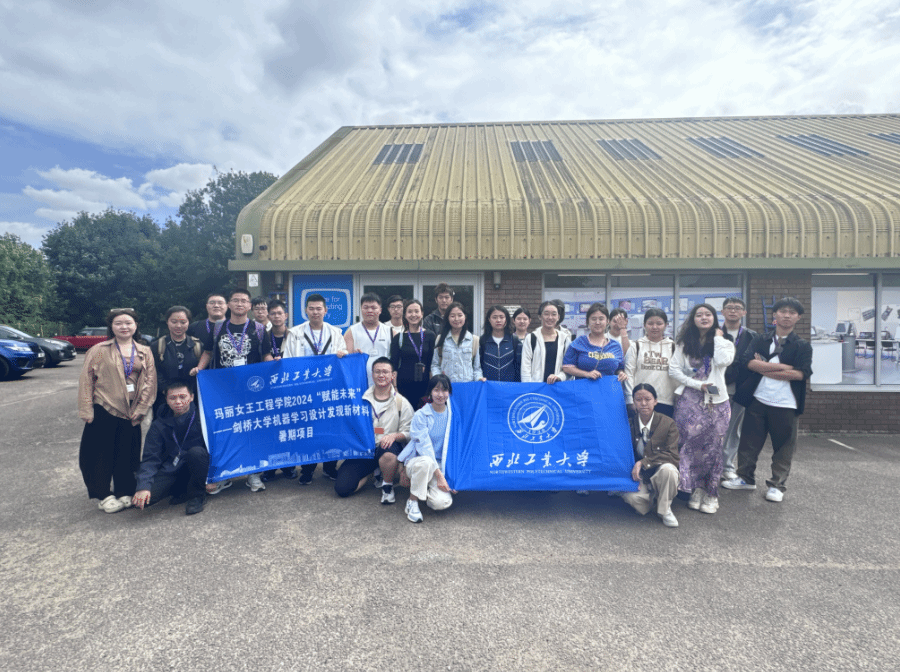
On August 10th, the group visited London, exploring its iconic landmarks including the Tower of London, Big Ben, Westminster Abbey, the Houses of Parliament, and Buckingham Palace. They gained insight into London’s unique historical and cultural heritage and enhanced their understanding of British history and traditions. On August 11th, the students toured the University of Oxford, delving into the history of this venerable institution. They visited Christ Church College, the Bodleian Library, St Mary’s Church, and the Bridge of Sighs, among other notable sites.
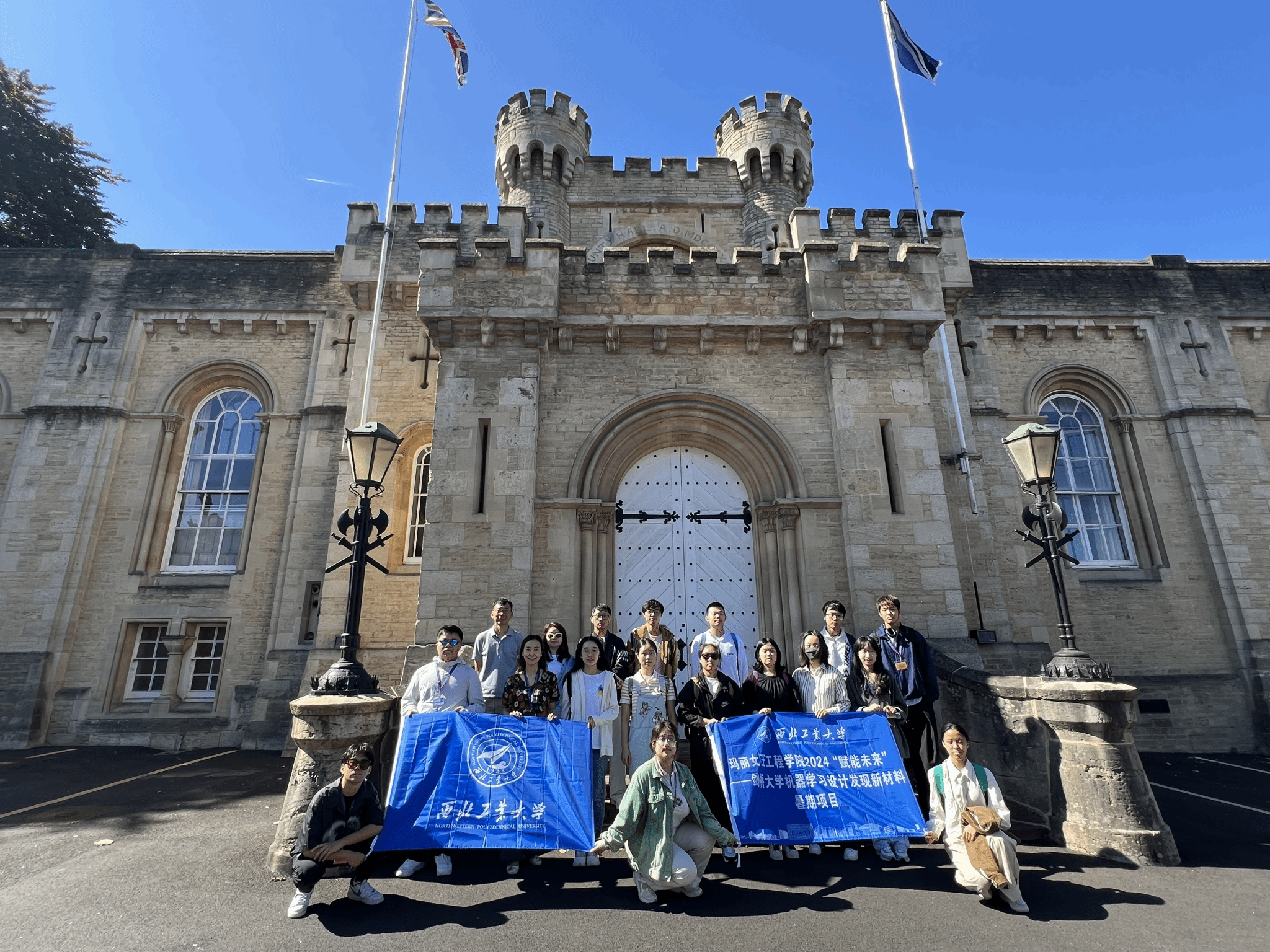
On August 12th, Cheng Yin and her group discussed with QMES Cambridge alumni. The students reported on their experiences at the University of Cambridge to their former teachers and offered advice on studying abroad and building alumni networks based on their observations of the British higher education system.
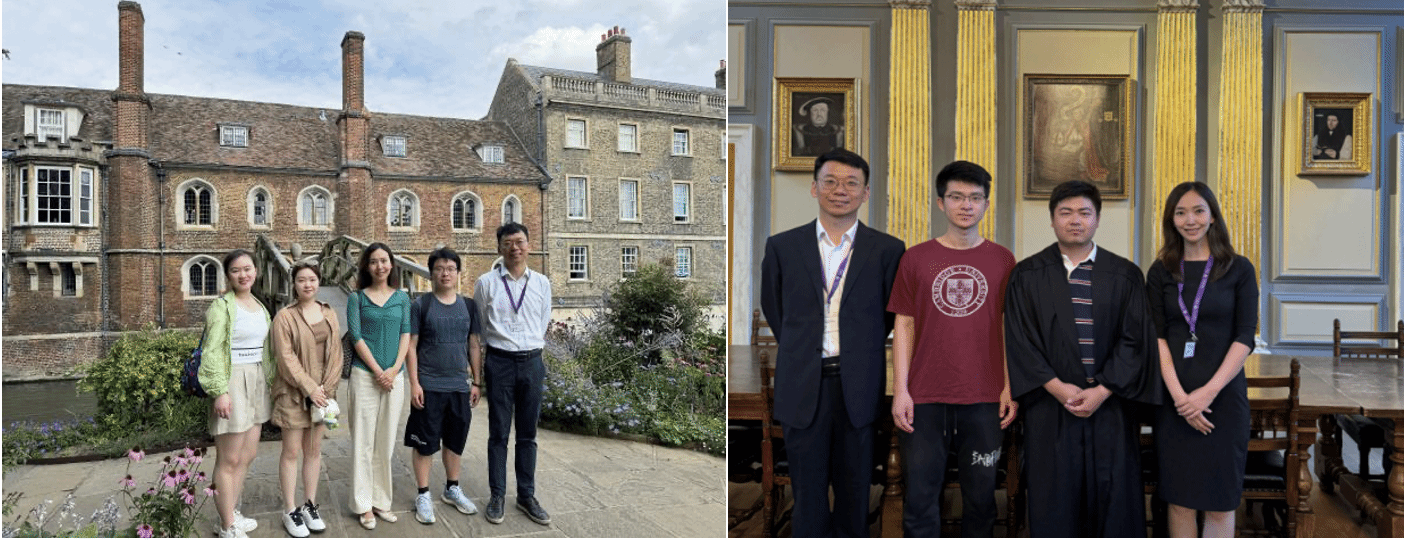
On the evening of August 15th, the students attended a formal dinner at Corpus Christi College, Cambridge. Under the flickering candlelight, dressed in formal attire, they entered the historic hall and experienced a feast that transcended time. The blend of fine dining and etiquette evoked echoes of history, making the event not only a meal but also a cultural immersion, deeply reflecting Cambridge’s unique academic atmosphere and aristocratic charm.
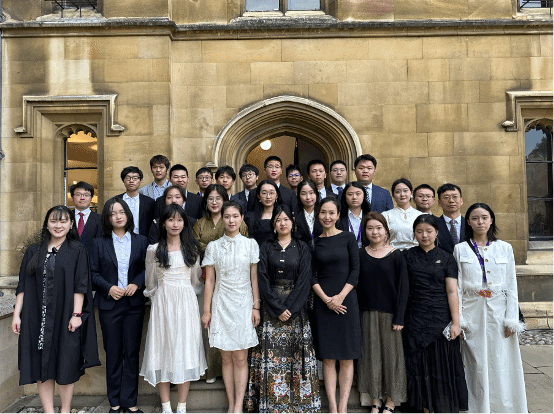
On August 16, the study tour team visited the Rolls-Royce Aerospace Engine Development Centre. Through the engineers’ explanations, students learned about the development of Rolls-Royce steam engines and observed the engines used in the first transatlantic flight. At the Derby Museum of Making, they saw historic textile machinery, hand-crafted motorcycles from centuries past, and the milestones of human progress.
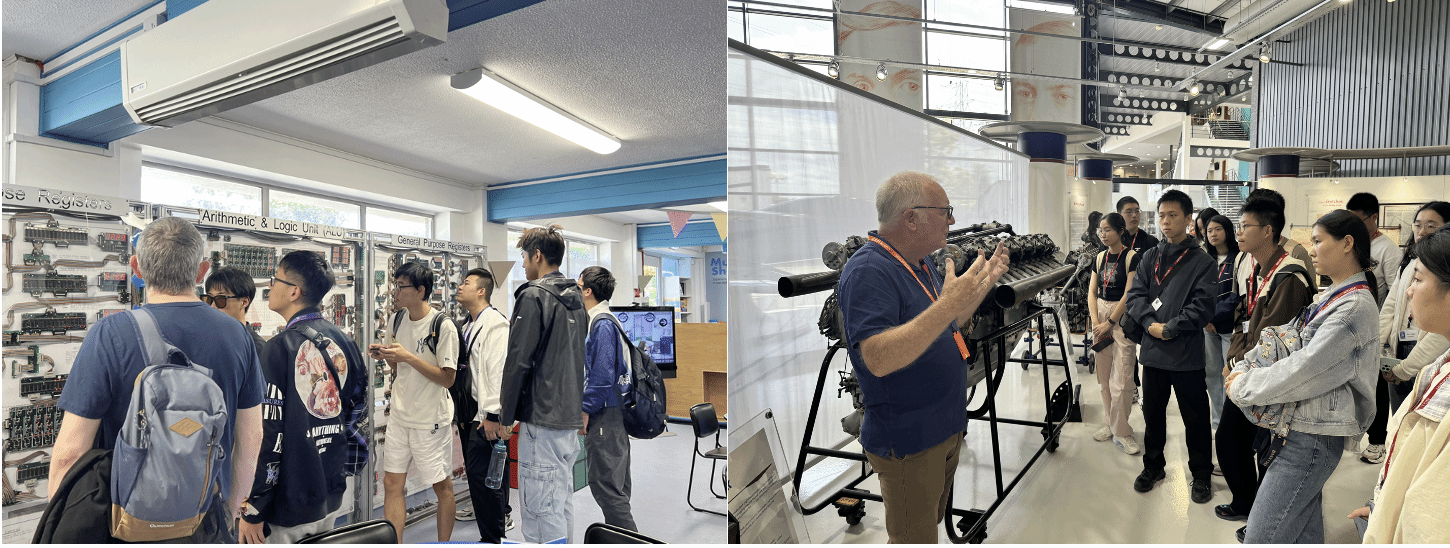
The 2024 Cambridge University Summer Programme in Machine Learning Design and New Material Discovery has successfully concluded. During the exciting yet brief two weeks, students enhanced their research skills and deepened their theoretical knowledge through academic courses. They tackled challenges and surpassed their limits in group project discussions, fostering team collaboration. The diverse and engaging practical activities broadened their global perspectives and strengthened their cross-cultural communication skills. Participants unanimously reported that the programme was highly beneficial and provided clearer insights into their future development.
Journey of Discovery Ignites Dreams, Youthful Energy Illuminates the Future
Studying at the University of Cambridge for two weeks was not only an academic challenge but also a significant opportunity for personal growth. Engaging with leading professors in the field of materials science and delving into cutting-edge theories have helped us better plan our future academic paths and inspired innovative ideas. Embracing Cambridge’s critical thinking and multifaceted approach to problem-solving, alongside the educational philosophy of NPU, will enable us to achieve greater personal success.
— Wang Haochen
Through a fortnight of the Cambridge New Materials Summer Programme, I immersed myself in a sea of knowledge, with the world of cutting-edge materials at my fingertips. From the academic grandeur of Cambridge to the streets of London, every step witnessed the depth of science and the breadth of culture. The breezes along the Thames, the scholarly echoes of Oxford, and the industrial brilliance of Rolls-Royce interwove to create a vivid academic journey. Conversations with Nobel laureates deepened my understanding of rigorous scholarship. This experience not only enriched my knowledge in fields like ion conductors and superconductors but also allowed me to appreciate the free yet rigorous academic spirit of Cambridge University.
— Fengxiang Zhao
(Text: Tong Miaomiao, Guo Hanyu, Chen Yilin, Li Yuke; Photo: All the members of the programme;
Edit: Han Huichun; Translate: Shen Xinyi; Review: Cheng Yin)

